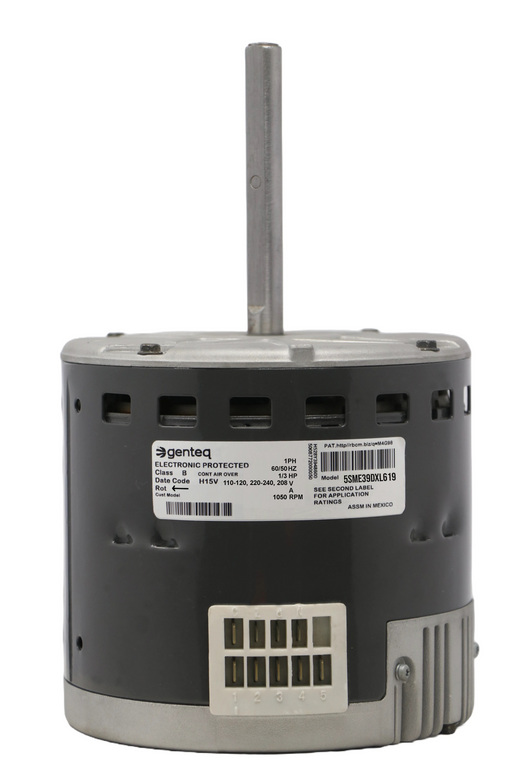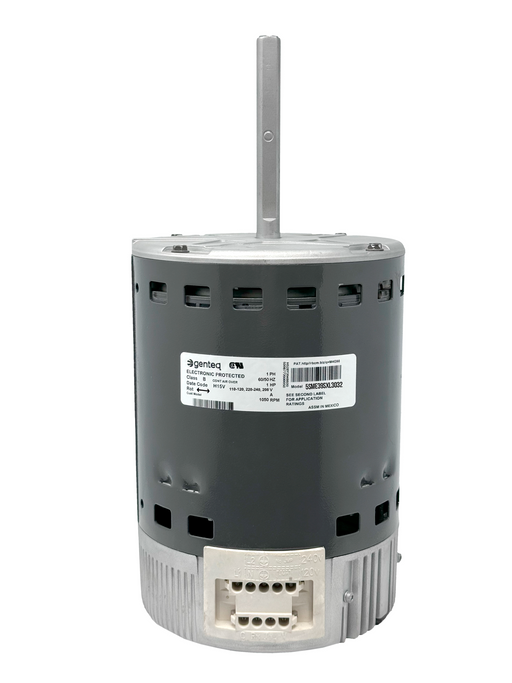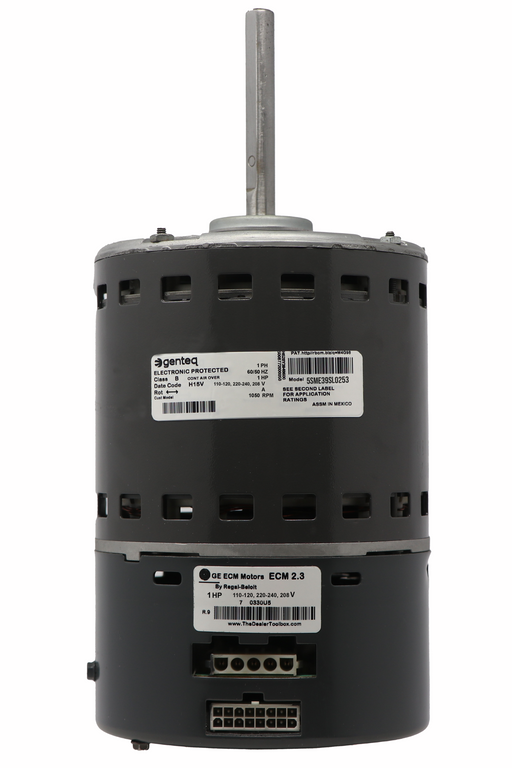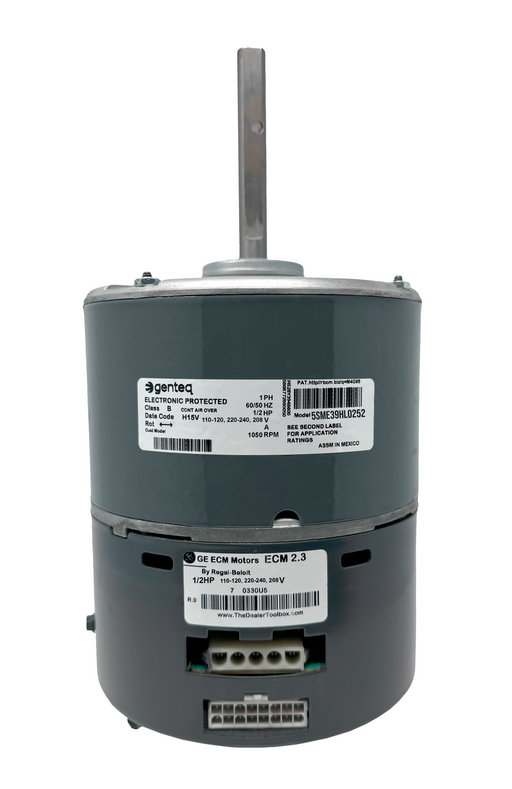(813) 440-8108

ECM Motor vs. Variable Speed Motor: Understanding the Differences
When choosing the motor suitable for your HVAC system, you might encounter electronically commutated motors (ECM) and variable speed motors. While they may seem similar, they have distinct differences that can impact your HVAC system's performance and efficiency. Understanding these differences can help you select the best motor for your needs.
This article will compare ECM and variable speed motors, exploring their mechanisms, benefits, and ideal applications.
What is an ECM Motor?
ECM motors are advanced, electronically controlled motors that operate with high efficiency. They use DC power converted from AC power and an electronic control module to precisely adjust motor speed and torque.
Key Features:
- Electronic Commutation: Electronic controls are used for precise speed and torque management.
- High Efficiency: ECM motors are known for their superior energy efficiency.
- Quiet Operation: Runs smoothly and quietly due to precise control.
👉🏻 Read More: How to Test HVAC Blower Motor with a Multimeter: A Comprehensive Guide
What is a Variable Speed Motor?
Variable speed motors, often synonymous with ECM motors, provide a wide range of speeds to match the HVAC system's demand. They adjust continuously to maintain optimal airflow and temperature.
Key Features:
- Continuous Speed Adjustment: Provides variable speed control for precise airflow.
- Enhanced Comfort: Maintains consistent temperature and humidity levels.
- Energy Savings: Reduces energy consumption by operating at lower speeds.
Remanufactured Motor by United HVAC Motors
2 Year Replacement Warranty (Terms Apply)
Plug n Play - 100% Programmed
Match your Motor Model N...
Remanufactured Motor by United HVAC Motors
2 Year Replacement Warranty (Terms Apply)
Plug n Play - 100% Programmed
Match your Motor Model N...
5SME39SXL3032 GE Genteq Blower Motor ECM 3.0 1 HP
5SME39SL0253 GE Genteq Blower Motor ECM 2.3 1 HP
Comparing ECM Motors and Variable Speed Motors
Efficiency
- ECM Motors: Offer high efficiency due to their ability to adjust speed and torque precisely. They are particularly effective in reducing energy consumption in part-load conditions.
- Variable Speed Motors: Also provide excellent efficiency by running at lower speeds and adjusting to the exact needs of the system. They save energy by reducing on-and-off cycling.
Performance
- ECM Motors: Provide consistent performance with precise control over speed and torque. They are ideal for applications requiring steady airflow and minimal noise.
- Variable Speed Motors: Excel maintains a consistent indoor environment by adjusting speeds based on demand. They offer superior temperature and humidity control.
Applications
- ECM Motors are suitable for residential and commercial HVAC systems where high efficiency and quiet operation are essential. They are commonly used in furnaces, air handlers, and ventilation systems.
- Variable Speed Motors: Ideal for systems requiring variable airflow to maintain comfort and efficiency. They are frequently used in residential HVAC systems and advanced commercial setups.
Maintenance and Longevity
ECM and variable speed motors require regular maintenance to ensure longevity and optimal performance. Key maintenance tasks include:
- Regular Cleaning: Keep the motor and fan blades free of dust and debris.
- Lubrication: Ensure bearings are lubricated if required.
- Professional Inspections: Schedule regular check-ups with a qualified technician.
👉🏻 Read More: Understanding the Different Types of Blower Motors for HVAC Systems
Conclusion
While ECM motors and variable speed motors share similarities in their ability to improve HVAC system efficiency and comfort, they have distinct features that suit different applications. ECM motors are known for their high efficiency and precise control, making them ideal for systems requiring consistent performance and minimal noise. Variable speed motors, on the other hand, excel in providing dynamic airflow adjustment, enhancing comfort, and reducing energy consumption.
Understanding these differences can help those looking to upgrade their HVAC systems make an informed decision. Explore our selection of high-quality ECM and variable-speed motors on our website to find the perfect fit for your needs.
5SME39HL0252 GE Genteq Blower Motor ECM 2.3 1/2 HP
Remanufactured Motor by United HVAC Motors 2 Year Replacement Warranty (Terms Apply) Plug n Play - 100% Programmed Match your Motor Model N...
View full detailsTo confirm product availability please call (813)440-8108. Some items might be in stock but not yet prepared to be shipped.

 Sold out
5SME39DXL619 GE Genteq Blower Motor ECM X13 1/3 HP
Sold out
5SME39DXL619 GE Genteq Blower Motor ECM X13 1/3 HP
5SME39DXL619 GE Genteq Blower Motor ECM X13 1/3 HP
Remanufactured Motor by United HVAC Motors 2 Year Replacement Warranty (Terms Apply) Plug n Play - 100% Programmed Match your Motor Model N...
View full details



